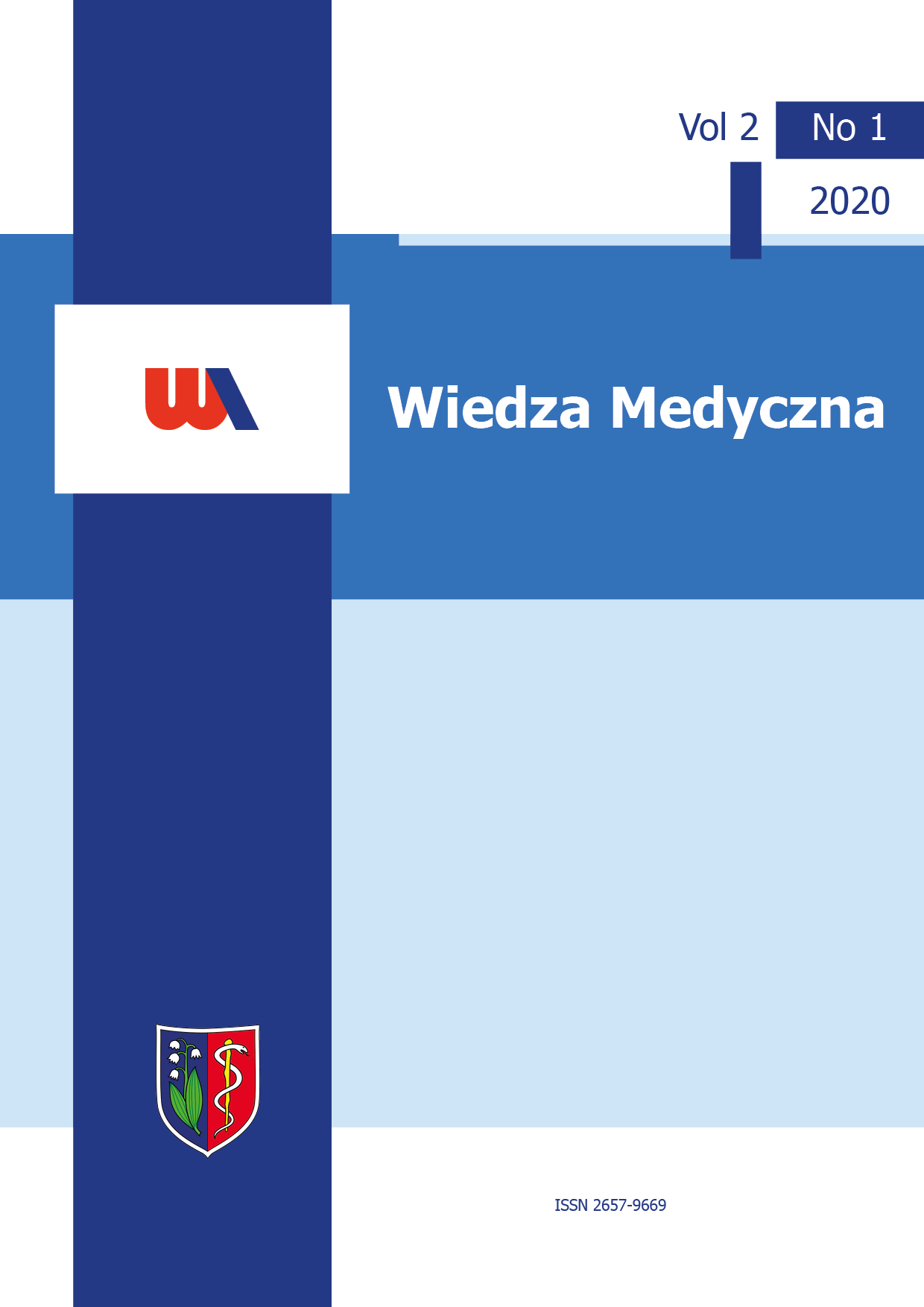Abstract
We are witnessing an unprecedented increase in the population of elderly people in Poland and other countries. A large number of these people are at risk of falling ill with cancer. In recent years, medicine has successfully reduced mortality from cardiovascular diseases. Unfortunately, it has been impossible to achieve a significant reduction in cancer mortality, especially in countries with a medium-high human development index, including Poland. The mortality of elderly people due to cancer is particularly difficult to reduce. Screening programmes should be targeted primarily at the older people. The number of people who are unnecessarily tested to diagnose one case of cancer is the lowest in this population. However, screening methods are nonspecific, result in cancer overdiagnosis, extend the lead time, but do not reduce mortality. New screening methods that identify the highest-risk conditions should be developed primarily for the use in the older population. Survivorship care plans for patients who have had cancer are equally important for elderly and younger people. They allow younger patients to resume active life and work. In the elder, they may facilitate control of comorbidities likely to exacerbate after cancer treatment. These exacerbations increase the costs of hospital treatment, reduce the quality of life and increase mortality for reasons not directly related to cancer. The higher cancer mortality rate in elderly patients is partly associated with the fact that treatments with proven effectiveness in younger patients are not used in elderly people because there is no evidence for their clinical benefit but also because they may be overtreated. Relevant studies are currently being carried out by specialized institutions. These challenges should be considered in the debates on the priorities of updated versions of the National Cancer Control Programme and the National Health Programme.
References
2. Dagenais GR, Leong DP, Rangarajan S et al. Variations in common diseases, hospital admissions, and deaths in middle-aged adults in 21 countries from five continents (PURE): a prospective cohort study. Lancet. 2019 Sep 3. pii: S0140-6736(19)32007-0. doi: 10.1016/S0140-6736(19)32007-0
3. Siegel RL, Miller KD and Jemal A: Cancer Statistics 2017, 2017.
4. Altekruse SF, Kosary CL, Krapcho M, et al. SEER Cancer Statistics Review, 1975-2007: National Cancer Institute. Based on November 2009 SEER data submission, posted to the SEER web site, Bethesda MD 2010
5. Smith BD, Smith GL, Hurria A et al. Future of cancer incidence in the United States: Burdens upon an aging, changing nation. J Clin Oncol 27: 2758-2765, 2009.
6. „InformacjaMinistraZdrowianatematwpływuzmiandemograficznychistarzeniasięspołeczeństwanaorganizacjęsystemuochrony zdrowia i Narodowy Program Zdrowia” (w dniu 19.02.2016 r.) https://stat.gov.pl/obszary-tematyczne/ludnosc/ludnosc/ludnosc-w-wieku-60-struktura-demograficzna-i-zdrowie,24,1.html dostęp z dnia 21.10.2019r.
7. Pinsky PF Principles of Cancer Screening Surg Clin North Am. 2015 October ; 95(5): 953–966
8. Salzman B, Beldowski K, de la Paz A. Cancer Screening in Older Patients. Am Fam Physician. 2016 Apr 15;93(8): 659-67. Review
9. Ross HA, Clark MM. Cancer Screening in the Older Patient American Family Physician 2008 December 15 Vol. 78, Number 12: 1369-1374.
10. Masaoka H, Ito H, Yokomizo A, Eto M et al.Potential overtreatment among men aged 80 years and older with localized prostate cancer in Japan. Cancer Science. 2017;108(8):1673-1680.
11. Tosoian JJ, Alam R, Gergis C et al.Unscreened older men diagnosed with prostate cancer are at increased risk of aggressive disease. Prostate Cancer Prostatic Dis. 2017 Jun;20(2):193-196.
12. Drury A, Payne S, Brady AM Cancer survivorship: Advancing the concept in the context of colorectal cancer European Journal of Oncology Nursing 2017,29: 135-147
13. Guida JL, Ahles TA, Belsky D et al.Measuring Aging and Identifying Aging Phenotypes in Cancer Survivors. J Natl Cancer Inst. 2019 Jul 18. pii: djz136. doi: 10.1093/jnci/djz136. [Epub ahead of print] PubMed PMID: 31321426.
14. Mouri T, Naito T, Morikawa A et al.Promotion of Behavioral Change and the Impact on Quality of Life in Elderly Patients with Advanced Cancer: A Physical Activity Intervention of the Multimodal Nutrition and Exercise Treatment for Advanced Cancer Program. Asia Pac J Oncol Nurs. 2018;5(4):383–390.
15. Rowland JH, Bellizzi KM. Cancer survivorship issues: life after treatment and implications for an aging population. J Clin Oncol. 2014;32(24):2662–2668.

This work is licensed under a Creative Commons Attribution 4.0 International License.

